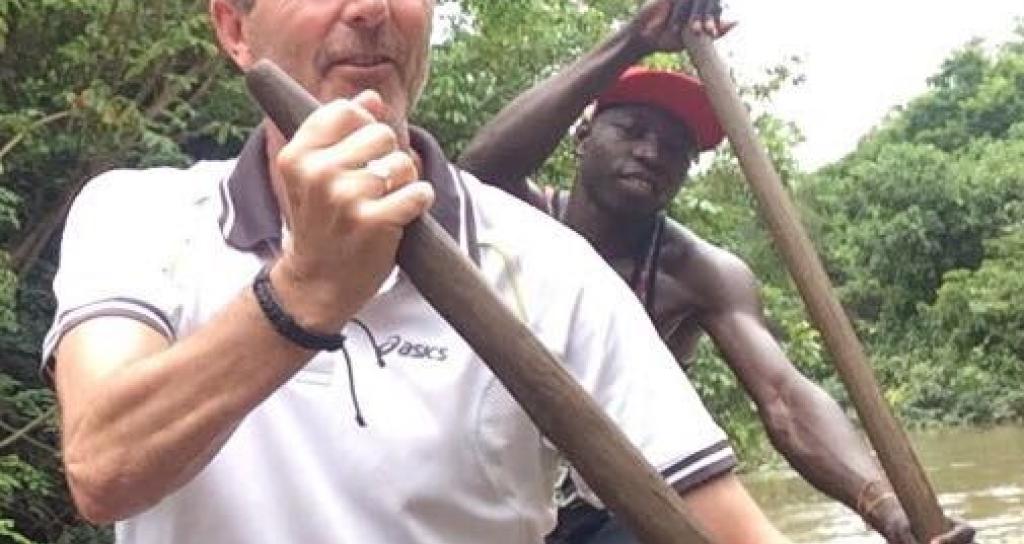“Working with people, different cultures, teaching, supervision, great variety. I’m surprised more people don’t choose a career in education.”

Stan Lommelen on the importance of building a good relationship with students
‘Strong performance starts with a strong relationship’, is a quote from a colleague who died too soon and who, like me, worked in special education. Our pupils, aged between 12 and 18, had learning and/or educational disabilities such as dyslexia, autism, ADHD or antisocial behaviour. I really enjoyed my time there. I taught Dutch and English and mentored a group of students in cooperation with a speech therapist (who is now a language buddy for one of the Language Centre students), a psychologist, a social worker and experts from all sorts of external organisations.
I work a lot with refugees these days and the skills I learned in special education really come in handy. The students who are refugees also need a bit more attention and supervision than the other students. I also teach Dutch as a second language and occasionally English. Students need to pass level II of the NT2 exam – the highest level – in order to study at a Dutch research university or university of applied sciences. You have to be able to express everything in Dutch, including emotions and feelings, so it’s important to build up a good relationship with your students and create a safe classroom environment.
I enjoy working with the same students over longer periods of time as in the pre bachelor’s programme for refugees and the WooW project. We help refugees who worked in the construction industry to adjust to Dutch working practices and to get their Dutch up to scratch, so that they can return to their profession. Last year’s project was a great success, especially because of the shortage of construction workers. You really get to know each other over the course of the year; I still appreciate all the different cultures in my group and I’m still learning. I can tell they really appreciate it when I prepare something extra, like a song, something relating to their work or an article on a subject that interests them. That could be anything from refugee issues to an aspect of Dutch culture, like the social debate on Black Pete.
The combination of supervision and teaching still interests me even after 40 years in education, and it’s nice to see my daughter Milou going in the same direction. She runs an NGO, Tumi Ghana, and a hostel in Ghana’s second largest city, Kumasi. She uses the proceeds and donations from sponsors and organisations like Wilde Ganzen (‘wild geese’) to train young women as tailors. She also offers them courses on entrepreneurship and – on a very different note – family planning. After completing the free course, some women start their own businesses. People in Ghana wear either second-hand clothes or tailor-made fashion. You might see one person dressed in a Lutjebroek Football Club T-shirt and another in a figure-hugging garment. Their outfits are often colourful and always clean: Ghanaians really care about their appearance.
UM’s ICT department has already made some used laptops available to help people in Ghana with their studies or businesses. Those initiatives are helping to forge stronger ties between UM and Ghana. As a further example, Tumi Ghana supplied the Faculty of Law with Christmas gifts two years ago. Our colleagues at the Faculty of Law received garlands, napkins, laptop bags and cooking aprons made of colourful Ghanaian fabrics.
Colourful is a word that applies to my job as well: working with people, different cultures, teaching, supervision, great variety. I’m surprised more people don’t choose a career in education. If I had the choice, I’d do it all again!
Interested to know more about Tumi Ghana? Click here to find out more.